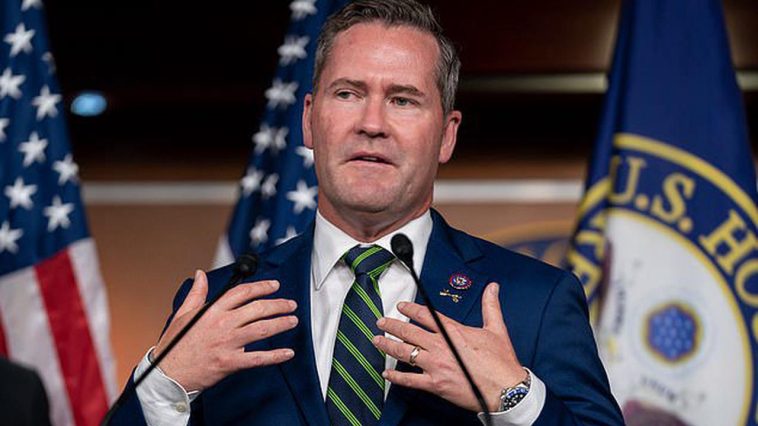Florida’s notable Republican Representative, Michael Waltz, recently expressed stern discontent with the perceived lack of decisive action from the current administration in the face of assaults on American troops by Iran-supported militant groups in the volatile regions of Iraq and Syria.
In the highlighted incidents, American bases in Syria deflected drone strikes, while rockets rained down on a U.S. base stationed in Iraq, painting a vivid picture of escalating tensions.
The allegations come amid increasing scrutiny around President Biden’s approach to Iran, particularly surrounding policies that have been seen as offering some degree of concession to the adversarial nation.
In a pivotal initiation of dialogue, the administration took the notable step of negotiating the release of five American citizens held captive by Iran. In return, Iran received access to a sizable $6 billion fund that had been withheld by South Korea. The funds were allocated ostensibly for humanitarian aid in a move that has colored public sentiment and sparked debate.
Waltz was outspoken in his discussion with Sandra Smith, the co-host of ‘America Reports’. He expressed a shared sentiment that the current administration’s public addresses often seem to contain a noticeable critical tone towards Israel, America’s key ally in the region, particularly over issues of human rights and the conduct of warfare, which could give an unintended and harmful message to the region.
Waltz didn’t mince words in his critique. He brought attention to the troubling string of assaults on American bases, with a staggering 70 to 80 reported over the past couple of years in both Iraq and Syria, and an additional 10 reported recently.
The lack of significant countermeasures points to a perceived weakness that has been noted by adversaries, particularly Iran, in the view of Waltz, posing a risk to American resilience in the region.
As a former Green Beret, Waltz has an experienced perspective on national security affairs. He voiced concern over the easing of sanctions on Iran by the current administration. This policy move, according to Waltz, has led to what he deems a substantial enrichment of Iran’s foreign reserves, which reportedly jumped from a modest $4 billion to an eye-catching $70 billion.
Further, Waltz emphasized the point that Iran’s oil exports have experienced a noteworthy revival. From being nearly non-existent, they have seen a resurgence to an estimated $30 billion annually. This economic revival, combined with the $6 billion liquefied financial aid Iran received in trade for the American hostages, is seen as a source of added strength for the adversarial nation.
Waltz expressed frustration at the current state of affairs in the political landscape, particularly in the House.
He acknowledges that his fellow Republicans are dealing with internal issues but condemns the strategy of seeking to resolve geopolitical challenges by simply providing more financial resources without delving into meaningful policy discussions or potential strategic alternatives.
The Florida Representative insists on the dire need for the U.S. to formulate a direct and clear approach to the continuous Iranian aggressions. His contention argues for a more defined stance from key U.S. departments including the Pentagon, the State Department, and the White House.
His plea calls for declaratory diplomacy against Iran, involving transparently communicated consequences for continued attacks on U.S. military assets and facilities.
According to Waltz, the presently stated policy – reserving the right for self-defence – has a diluting effect on America’s deterrence posture and does little to assuage public concern.
Waltz is of the belief that a more definitive course of action must replace the current stance as it lacks clarity in communicating the cost to adversaries for continued aggression against U.S. interests.
As he argues, it’s the message that potential adversaries perceive: as long as the cost is not clearly defined, they’ll act upon every perceived weakness or opportunity.
While the majority of Americans may rally behind the basic call for national defense, Waltz insists that a more nuanced question needs to be addressed.
‘What are we going to do to stop continued attacks?’ is a question he believes the citizens are asking, and more importantly, the answer to which may define American foreign strategy in the Middle East for the foreseeable future.
His frank assessment kicks off a critical dialogue on the perception of U.S. resolve and strategic planning among its adversaries. It brings to light the necessity for a clear communication of consequences, which, until now, Waltz believes is not being effectively conveyed by the key stakeholders in the U.S. government.
This lack of direct communication, Waltz proposes, results in a perceived weakness of American stance. As long as adversaries are under the impression that they can exploit this perceived vulnerability without facing meaningful consequences, they will continue to act aggressively, escalating the precarious situation for American forces stationed overseas.
In summary, Waltz calls for a greater resolve and a more transparent defensive strategy that clearly communicates the consequences for antagonistic behavior. His arguments warrant a reassessment of the nation’s current approach to dealing with international threats, emphasizing the importance of clear communication and a firm stance towards adversaries, particularly in the geopolitical hotspots of Iraq and Syria.


